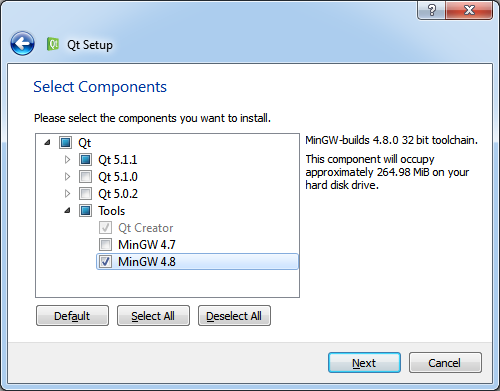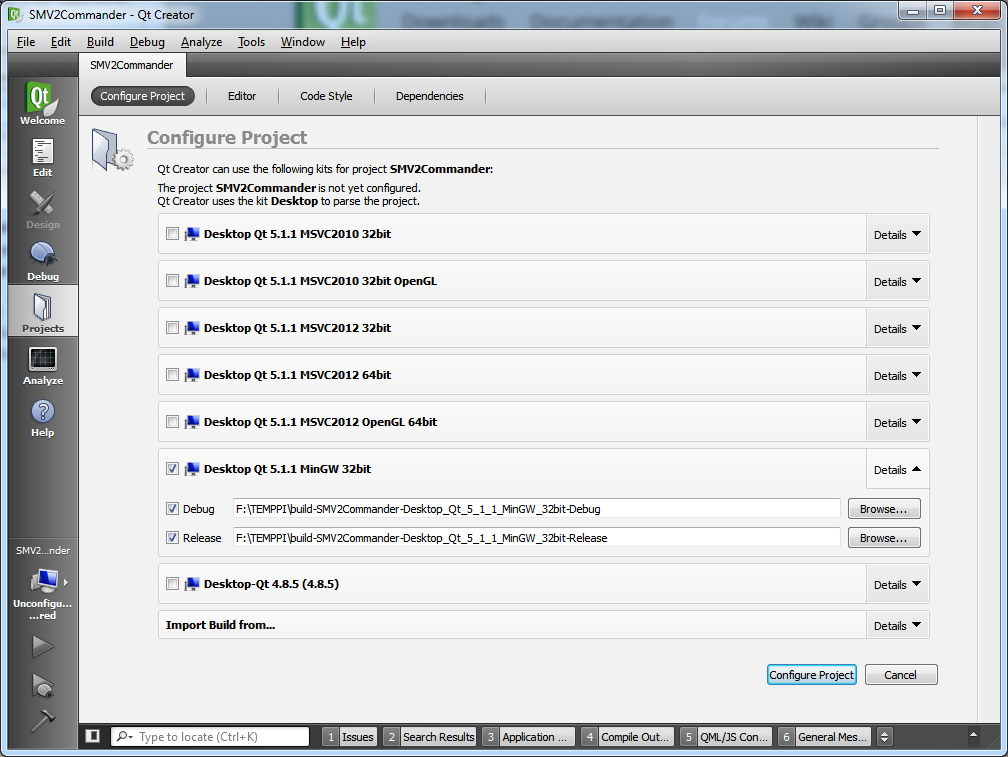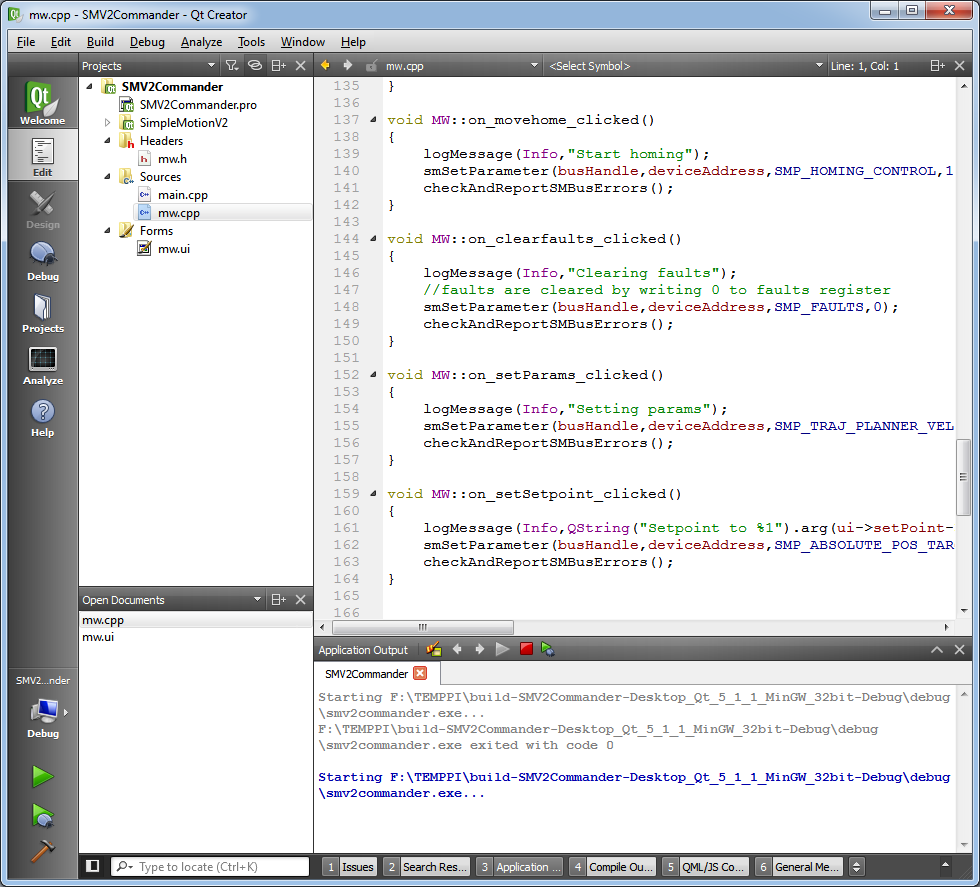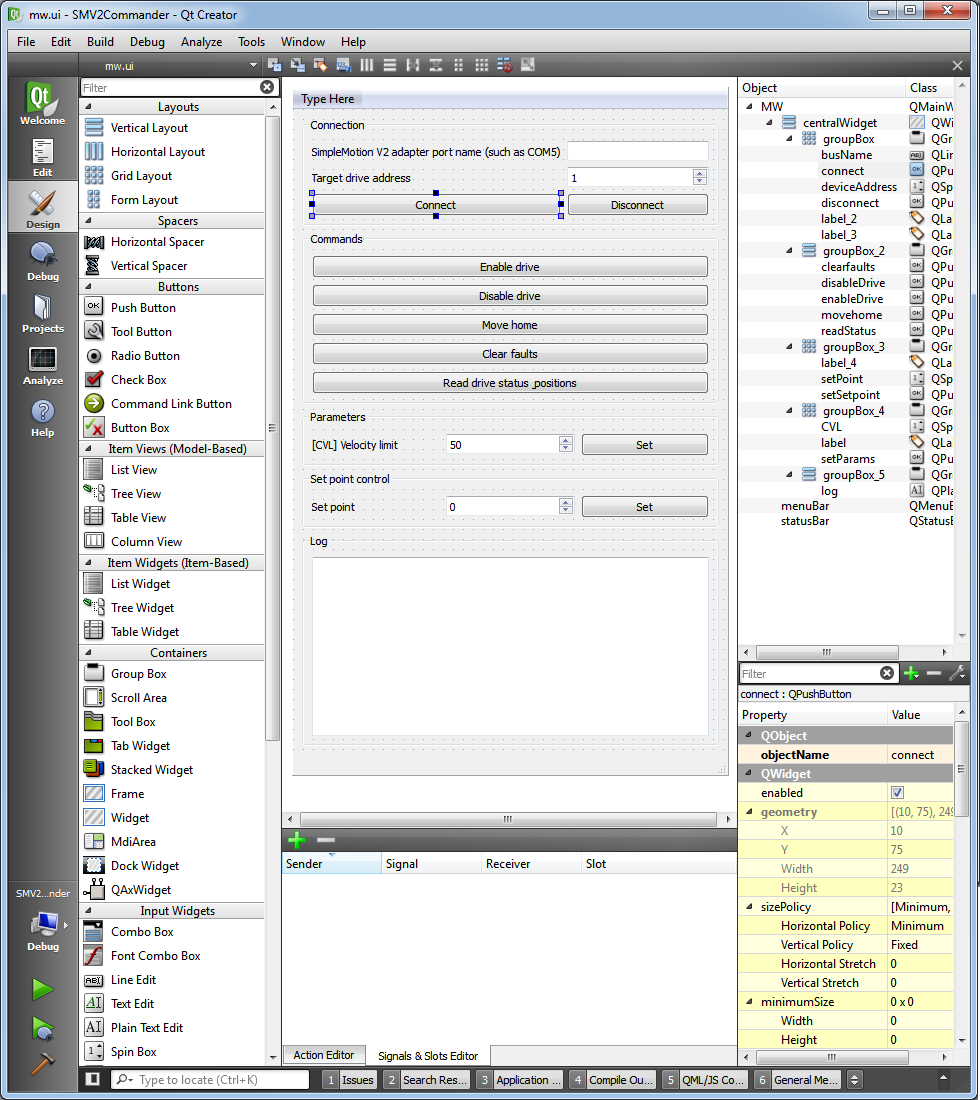Difference between revisions of "Installing Qt SDK from scratch"
From Granite Devices Knowledge Wiki
| [checked revision] | [checked revision] |
| Line 1: | Line 1: | ||
Installing open source Qt with compiler and IDE for Windows may be done by following the steps below. | Installing open source Qt with compiler and IDE for Windows may be done by following the steps below. | ||
| − | == | + | ==Installation steps== |
#Navigate to http://qt-project.org/downloads and download the latest '''Qt Online Installer for Windows'''. | #Navigate to http://qt-project.org/downloads and download the latest '''Qt Online Installer for Windows'''. | ||
#Launch the installer and make sure that Qt library, Qt Creator and MinGW has been selected <br/>[[File:Qt installer win.png]] | #Launch the installer and make sure that Qt library, Qt Creator and MinGW has been selected <br/>[[File:Qt installer win.png]] | ||
#Click next to begin installation | #Click next to begin installation | ||
| + | #All done! Launch Qt Creator | ||
| + | |||
| + | ==Using an example project== | ||
| + | ===Opening and building=== | ||
| + | #Open the project (.pro) file from Qt Creator | ||
| + | #If the project is opened first time, a following style dialog will show up <br/>[[File:Qt open project.png]] | ||
| + | #Check that correct Qt version has been ticked. In this case we installed MinGW compiler, so choose it. Untick all other Qt versions. Once done click Configure project. If something goes wrong and project refuses to compile, you may start over by deleting the ''somefile.pro.user'' file from the project folder. | ||
| + | #Now the project is open and may be browsed and edited <br/>[[File:Qt_build_project.png]] | ||
| + | #Hit '''Ctrl+B''' to build a project or '''Ctrl+R''' to run it<br/> | ||
| + | ===Editing=== | ||
| + | To create new controls in the [[GUI]], expand Forms from the projects pane and doubleclick the .ui file. In this example we add a button to the GUI: | ||
| + | #Double click '''.ui''' file to open a UI editor <br/>[[File:Qt edit ui.png]] | ||
| + | #Drag'n'drop a '''Push button''' from left side list to the UI | ||
| + | #Double click then new button to the change text on it. Also rename the object from the right side pane ('''objectName''' line). | ||
| + | #Select the button and right-click it to and choose '''Go to slot...''' | ||
| + | #Choose '''clicked()''' from the list and click Ok. | ||
| + | #A new function will be created to the code. The code will be executed on when the button is clicked. | ||
| + | |||
[[category:Development]] | [[category:Development]] | ||
Revision as of 22:27, 28 October 2013
Installing open source Qt with compiler and IDE for Windows may be done by following the steps below.
Contents
[hide]Installation steps
- Navigate to http://qt-project.org/downloads and download the latest Qt Online Installer for Windows.
- Launch the installer and make sure that Qt library, Qt Creator and MinGW has been selected

- Click next to begin installation
- All done! Launch Qt Creator
Using an example project
Opening and building
- Open the project (.pro) file from Qt Creator
- If the project is opened first time, a following style dialog will show up

- Check that correct Qt version has been ticked. In this case we installed MinGW compiler, so choose it. Untick all other Qt versions. Once done click Configure project. If something goes wrong and project refuses to compile, you may start over by deleting the somefile.pro.user file from the project folder.
- Now the project is open and may be browsed and edited

- Hit Ctrl+B to build a project or Ctrl+R to run it
Editing
To create new controls in the GUI, expand Forms from the projects pane and doubleclick the .ui file. In this example we add a button to the GUI:
- Double click .ui file to open a UI editor

- Drag'n'drop a Push button from left side list to the UI
- Double click then new button to the change text on it. Also rename the object from the right side pane (objectName line).
- Select the button and right-click it to and choose Go to slot...
- Choose clicked() from the list and click Ok.
- A new function will be created to the code. The code will be executed on when the button is clicked.